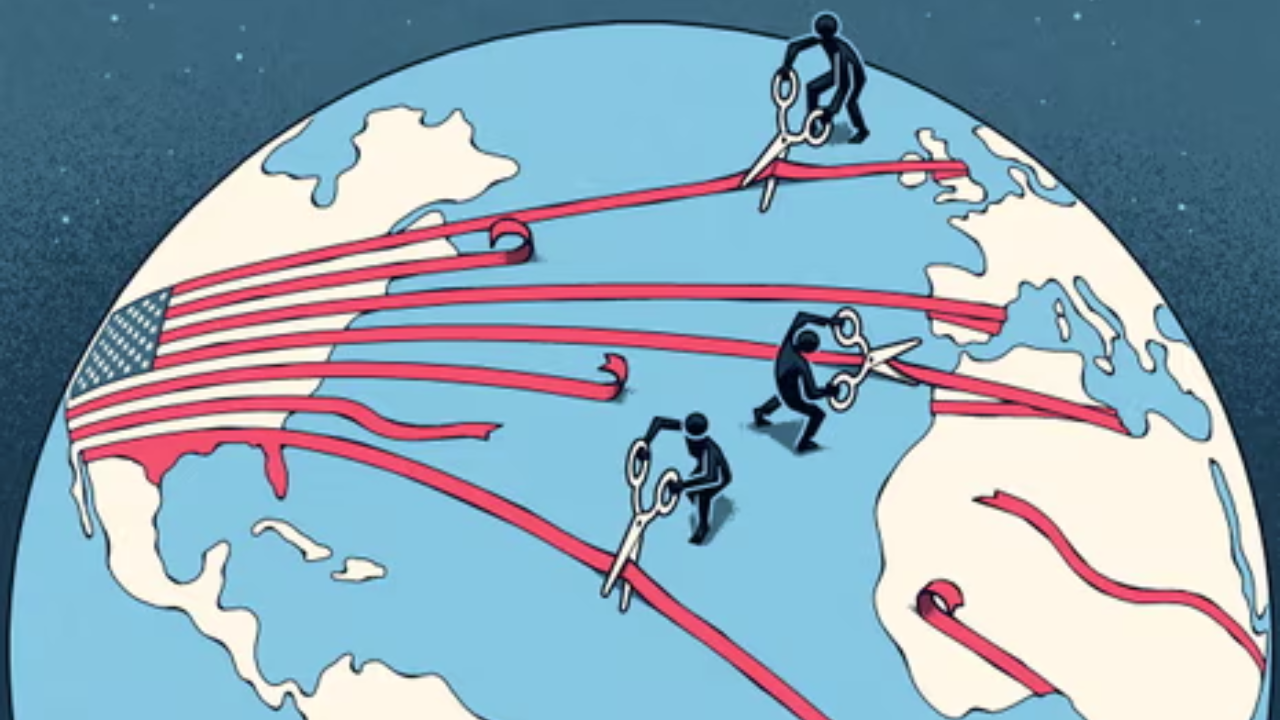“People speak with forked tongues about America,” a veteran foreign correspondent once told me. That conversation happened a long time ago, during a heated debate over whether the US should intervene in a foreign conflict.
But I’ve never forgotten what they meant: the US is often criticized for interfering in global affairs, yet equally condemned when it chooses not to act.
This contradiction still rings true today, and it feels even more unsettling as we near the 100th day of Donald Trump’s second term.
The world holds a conflicted view of America, simultaneously as a reckless violator of international law and the only nation capable of upholding global order. That contradiction has always been tense, but now it feels like it’s reached a breaking point.
I’ve felt this contradiction personally — the frustration when the US stays out of crises, and the anger when it doesn’t step up. Take Sudan, for example. Washington refuses to pressure its ally, the UAE, to stop fueling the war there.
But honestly, what evidence is there that the US ever truly acts in foreign conflicts without a direct interest?
We keep expecting moral leadership from a country that has never consistently shown it. I remember this dynamic from childhood, during Iraq’s invasion of Kuwait.
In our Sudanese classroom, debate raged over whether the US should get involved, until a student evacuated from Kuwait ended it with one urgent plea: “We must deal with the greater evil first.” Her words still echo in my mind.
Even in Gaza, despite Congress passing billions in military aid to Israel, there was once a fragile hope, now long gone, that a single call to Netanyahu might change things.
And even now, as Trump enables Putin, walks away from Ukraine, and slaps tariffs on allies, there lingers a faint belief that America can still somehow course-correct and act morally.
But for the first time in memory, the conversation is shifting. The usual argument — that American institutions will check a bad president — is now a whisper. Universities, law firms, and even parts of the media are bending to Trump’s whims.
Now, talk is turning to how Europe and others might distance themselves from the US — its military aid, its global programs, its influence.
But these ideas feel less like plans and more like people grappling with a reality they can’t quite process.
It’s both a technical and psychological challenge. The world we know was shaped by America. If the US becomes unpredictable, the very foundations of the global economy, like faith in the dollar or the rule of law, begin to shake.
We saw it during Trump’s latest tariffs, when a stock market crash sparked insider profits, even from those in the same room with the president.
When the head of a nation brags about such things, can we even define what insider trading means anymore?
Letting go of the US is also a deeply personal shift. A friend of mine, who holds a US green card but lives under an authoritarian regime in Asia, used to feel safe knowing he could escape to America if things got bad.
Not anymore. Legal residents are now targeted at borders, business travelers cancel trips out of fear, and the image of the US as a protective, principled place is crumbling.
For many in the global south who never fully believed in the US as a benevolent force, there was at least the idea that something within its system held it in check.
That idea was powerful — tied to symbols like the Statue of Liberty, the promise of liberty and opportunity, and even the hope Obama once inspired. Now, those ideals feel like dust.
Accepting this new reality is hard. Because, for all its flaws, a world without the US at the center feels more frightening than one where it missteps.
An unpredictable, unanchored world — one without an organizing force — could be even more dangerous than the one we’ve had. Not a world divided into neat Cold War camps, but something much more chaotic, much more uncertain.
Yet maybe, instead of panic, this moment calls for clarity and rebuilding. America’s decisions shape far more than its borders — they influence global prices, politics, and the very idea of national sovereignty.
It still holds enormous economic, military, and cultural power. So if its collapse is so deeply felt, perhaps the issue isn’t just Trump. Maybe we’ve always been too dependent on America’s direction.
In a strange twist, this could be the start of something liberating, not for the US, but for other countries. A painful process, yes, but also one that could bring true independence.
And maybe, finally, the world will begin to see that the US’s version of peace and prosperity was always self-serving, propped up by power and myth.
Disclaimer- Our team has thoroughly fact-checked this article to ensure its accuracy and maintain its credibility. We are committed to providing honest and reliable content for our readers.






